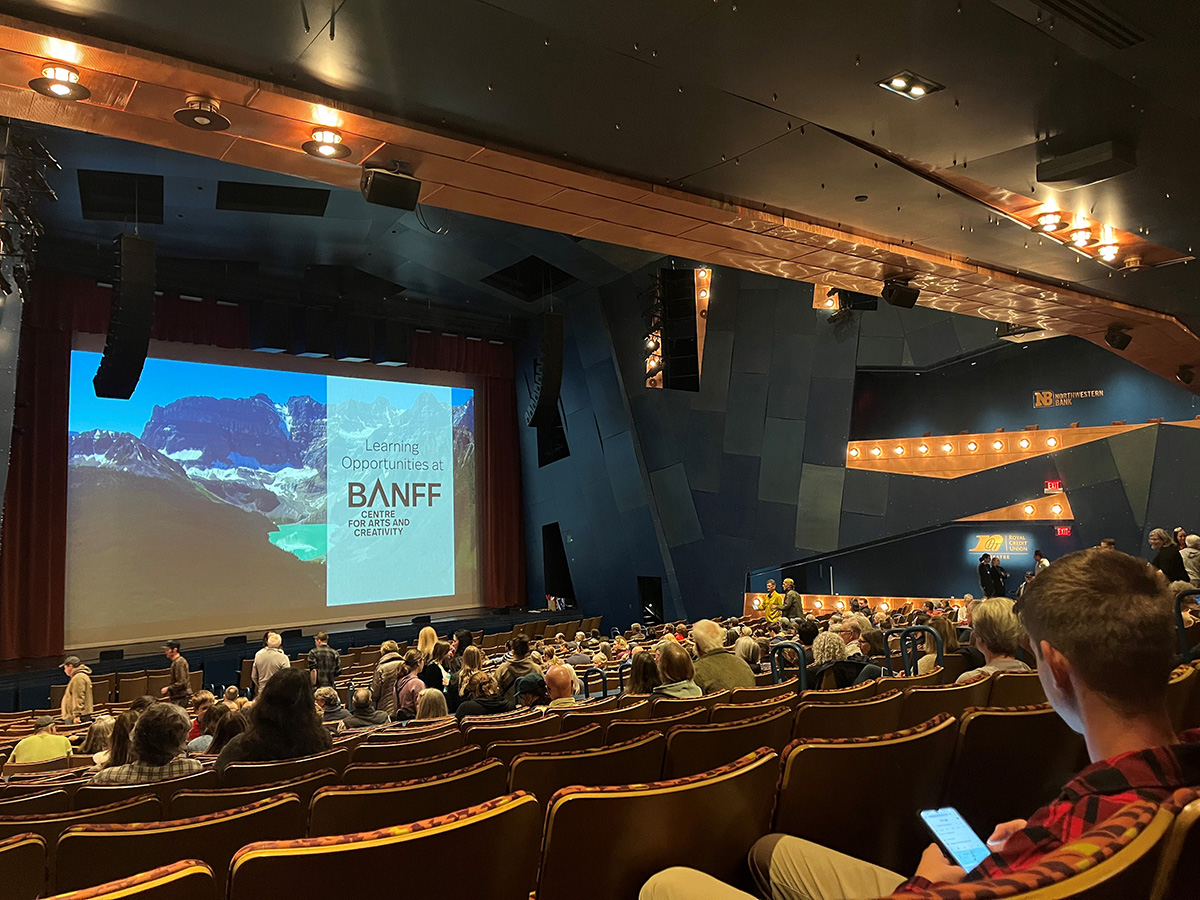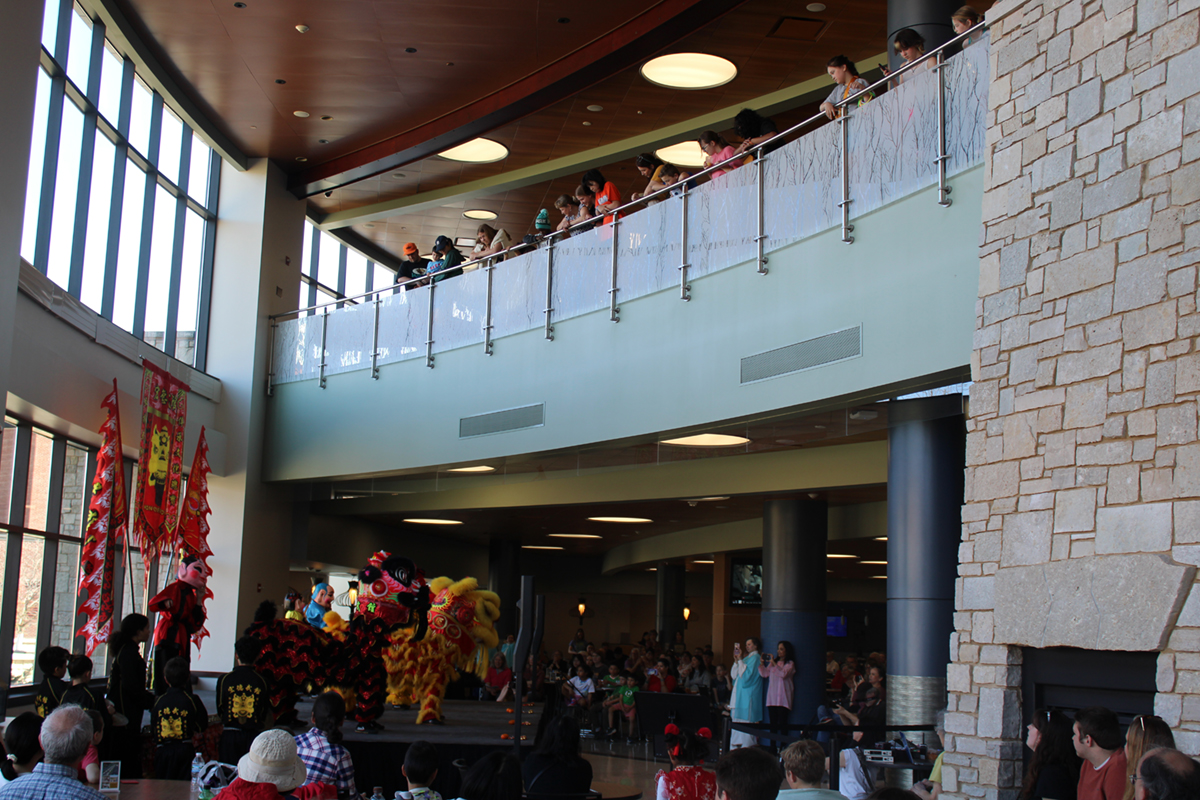The soaring notes of operatic sopranos, baritones, and tenors. The crescendos of a pit orchestra. The enthusiastic applause from an appreciative audience.
Mozart’s “The Magic Flute,” one of the most performed operas of all time, has finally come to UW-Eau Claire.
“The Magic Flute” is a love story that incorporates humor, pathos, and suspense. In Egypt during the reign of Ramses I, Tamino, a prince from a nearby kingdom, is asked by the Queen of the Night to rescue her daughter, Pamina, who has been kidnapped by Sarastro, the queen’s enemy. Tamino and Pamina fall in love but must endure trials in order tobe together.
Mitra Sadeghpour, director of the production, said she chose “The Magic Flute” for three reasons: It’s one of her favorite operas, it’s a great preparation for students’ careers, and she wanted to see how creative the crew could be with the staging.
“I love the magical part of it,” she said, “and I was really interested in how to make magic on stage visually.”
Senior Tomás Dominguez, who plays Sarastro’s chief guard Monostatos, said “The Magic Flute” is an especially good opera for those who have never seen one before.
“This show is very playful,” he said. “And while some people can appreciate the musicality of a seven-minute aria of someone dying … I think for first-time viewers the playfulness … really gets you interested and having fun.”
The production is in both English (the dialogue) and German (the lyrics). Sadeghpour said she never considered presenting the entire opera in German, since there are no German speakers in the cast and doing so might alienate the audience.
Doing the production entirely in English was an option, she said, but she thought the singers were “ready for the challenge” and that translating the lyrics would throw off the music.
“You can tell that it’s a translation of something,” she said. “It doesn’t feel natural.”
Dominguez agreed, saying that he understands the perspective of someone who would like the lyrics to be translated, but he prefers the feel of the German. He said he could also appreciate the choice from a performer’s point of view.
“One thing I like about opera, though, is that because it’s usually in a different language, it makes you do a little research outside,” he said. “Then you can really appreciate the music. And I think the choice to keep it in German really keeps the original poetry and feel of the music as its creator originally intended it.”
This is the first time Eau Claire has had a production sung completely in a foreign language, Sadeghpour said. To help those who aren’t fluent in German, supertitles are projected onto a screen above the stage during the songs.
Junior Becki Faulks, who attended the show Friday night, said she thought the German made it more beautiful.
“I didn’t really notice much of a disconnect between the two languages because the performers were so talented,” she said.
The show has two sets of lead actors. Sadeghpour said she decided to double cast because Eau Claire has so many singers capable of performing the parts well, and they all need some stage experience. She added that she thought the supporting cast was strong enough to adapt to two sets of leads.
“One of the really cool things that’s happened (because of double casting) … is that they’ll help each other and get ideas from each other,” she said. “It was a fantastic learning experience.”
This production was what led to the fire in the Haas Fine Arts Center a few weeks ago. A set designer was welding when items in the basement beneath Gantner Concert Hall caught fire. No part of the set was damaged, but the construction of the set was set back for several days because of the clean up, Sadeghpour said.
“I am so proud of the student technical crew,” Sadeghpour said. “We had so many things happen that were beyond our control. At every instant, the students just stepped up and made it happen. Their attitudes have been incredibly positive.”
Dominguez said that while the fire did cause some delays, the recent power outage in the Randall Park neighborhood caused even more problems. He said that some of the stage lights weren’t functioning correctly after power was restored, and they weren’t back up until the morning of the premiere.
Faulks said that, despite the mishaps the crew ran into, she thought the production overall was excellent.
“It was great to see such a high quality show at our university,” she said. “It really displayed the excellence UW-Eau Claire is striving for.”
Sadeghpour said she is very proud of her cast and crew for putting on a production of this magnitude.
“It was such an incredible collaborative effort,” she said. “You can just tell that there’s a joy there.”
“The Magic Flute” will be playing at 7:30 p.m. March 3-5 and 1:30 p.m. March 6 in Gantner Concert Hall. Tickets are $14 for the public, $12 for university faculty and staff, $10 for youth, and $5 for university students with an ID.






